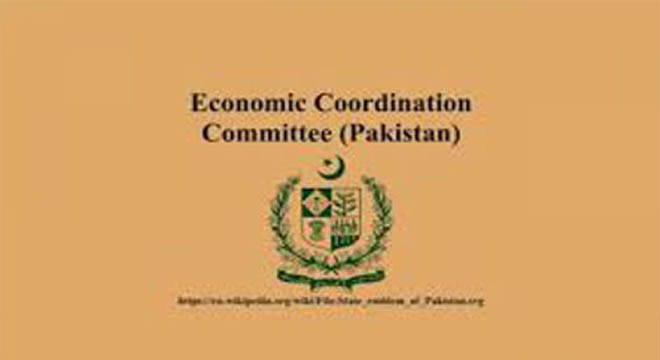ISLAMABAD-The Economic Coordination Committee (ECC) of the Cabinet is likely to discuss the Textile and Apparel Policy (2020-25) and National Freight and Logistics Policy (NFLP) next week.
The ECC, in last week’s meeting, had deferred Textile and Apparel Policy (2020-25) and National Freight and Logistics Policy (NFLP) for comprehensive consultation process with key stakeholders. Sources informed that Federal Board of Revenue (FBR) had sought one week’s time to analyse the revenue implications of the proposed measures under the policy. One of the major recommendations of the textile division is the restoration of the zero-rated regime for the five export-oriented sectors. The facility was withdrawn in the year 2019.
Officials have informed that ministry of commerce is also working to finalize the NFLP, which would be presented in next ECC’s meeting. NFLP is aimed at ensuring the transportation of goods domestically and internationally at competitive rates. The proposed NFLP will help the country’s freight and logistics system in meeting the demand for goods transport and associated supply chains at competitive prices and adequate service levels.
Under the proposed Textile and Apparel Policy (2020-25), the Commerce Ministry has decided to set the target of value added and textiles exports at $20.865 billion, of which $16.294 billion will be value added sector and $4.571 billion for textile sector by 2020-25. Proposed Textile and Apparel Policy 2020-25 will enable the country to export textile and value-added textiles worth $13.612 billion by 2020-21, in 2021-22 to $14.794 billion, in 2022-23 it will reach to $16.334 billion, in 2023-24 to $18.318 billion and to $ 20.865 billion by 2024-25.
Under the draft of proposed policy, it has been recommended to provide electricity at 9/kWh cents for the textile sector, followed by RLNG at $6.5 per mmBtu and domestically produced gas at Rs786 per mmBtu. Other incentives in proposed policy are that Long-Term Financing Facility (LTFF) and Export Financing Scheme (EFS) rates will not be changed; review of LTFF and refinance scheme for SMEs and indirect exporters and building cost will be included; and Brand Development Fund will be launched. The proposed policy is formulated to reduce the input cost of textile and clothing sector and make it competitive with the regional players. The impact of electricity at cents 9/kWh – all inclusive is estimated to be Rs123 billion, RLNG – Rs111 billion, DLTL for textiles and apparel products (garments/technical textile at 4 percent and made ups at 3 percent) – Rs420 billion, LTFF to continue at 5 percent – Rs75 billion and EFS to continue at 3 per cent – Rs109 billion.
Follow the PNI Facebook page for the latest news and updates.









